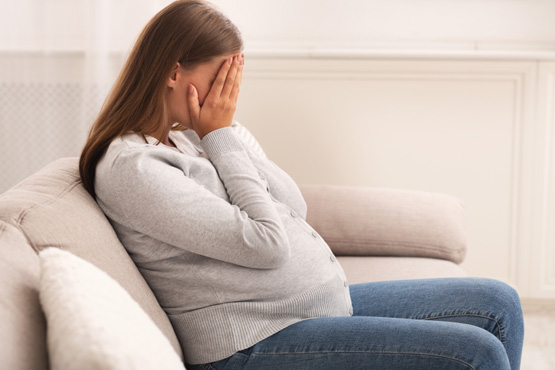WARTS DURING PREGNANCY

Genital Warts During Pregnancy
Pregnancy is one of the most special and sensitive periods in a woman's life. One of the health problems encountered during this period are warts on the skin. In this article, we will present the necessary information about warts during pregnancy.
What Are Warts?
Warts are benign skin growths, typically caused by a virus called HPV (Human Papilloma Virus). Warts are primarily formed by low-risk types of HPV (such as type 6 and 11). However, it's important to note that in approximately 10% of cases, low-risk types of HPV can be found alongside high-risk types (such as type 16 and 18). These high-risk types of HPV can lead to conditions such as cervical cancer. Therefore, the presence of warts during pregnancy can be an indication of both low and high-risk HPV infection.
The Importance of Warts During Pregnancy
During pregnancy, the mother's body adjusts its immune system to protect the developing baby. This can lead to the activation of latent viruses like HPV, and therefore warts are more commonly seen. The importance of warts goes beyond aesthetic concerns.
Warts during pregnancy carry the risk of transmission to the baby. This can lead to the baby becoming infected during birth, and potentially cause serious health problems such as laryngeal papillomatosis. This risk requires taking appropriate measures throughout pregnancy.
Also, the presence of warts, especially when indicative of high-risk HPV types, can increase the risk of cervical cancer. Therefore, the monitoring of warts observed during pregnancy is critical in managing the risk of cervical cancer.
In light of these data, we can say that the importance of warts during pregnancy is great for the health of both the mother and the baby. The effective management of warts is important in preserving the health of both the mother and the baby during and after pregnancy.
Treatment of Warts During Pregnancy
The treatment of warts during pregnancy generally depends on the location, size, and number of warts, as well as the patient's overall health status and the progression of the pregnancy. Here are the most commonly applied treatment methods:
Genital Warts and Birth Choice: Vaginal Birth or Caesarean?
The presence of genital warts plays an important role in the choice of childbirth method. Warts located in the cervix and vagina during pregnancy can obstruct vaginal delivery or cause serious bleeding during childbirth. Additionally, there is a risk of transmitting the HPV virus to the baby through warts.
There is no definitive evidence that a cesarean reduces the transmission of the virus to the baby in the presence of an HPV infection but no warts. In women with genital warts who have had a cesarean, HPV-related disorders can still be observed in their babies.
While it is thought that a cesarean could reduce the risk of laryngeal papillomatosis in HPV positive pregnant women who also have genital warts, there is no general consensus on this issue. There are not yet enough scientific studies and evidence to routinely recommend a cesarean for all pregnant women with genital warts or who are HPV positive.
However, many doctors prefer a cesarean to reduce potential HPV transmission after vaginal delivery, to prevent warts from spreading to episiotomy and birth tears, and to alleviate the mother's concerns.
In conclusion, the choice of birth method in the presence of genital warts should consider a range of factors and depend on the patient's overall health status, the condition and location of the warts, and of course the progression of the pregnancy. This decision should be made with your doctor and should always be in the best interest of the mother and the baby.
Where is Wart Treatment Performed During Pregnancy?
Wart treatment during pregnancy is performed at our wart treatment center located in Silivri, by Dr. Eser Ağar, an expert in gynecology and obstetrics. HPV Test, Smear and wart treatment with fractional laser are performed. For detailed information about wart treatment during pregnancy, you can reach us at 0505 260 72 38 and 0 850 490 14 78. Patients who want to get price information can also reach us in the same way.
This article may also interest you

Newborn babies can contract HPV (Human Papilloma Virus) infection from their mothers while passing through the birth canal.
Read more

 TR
TR EN
EN